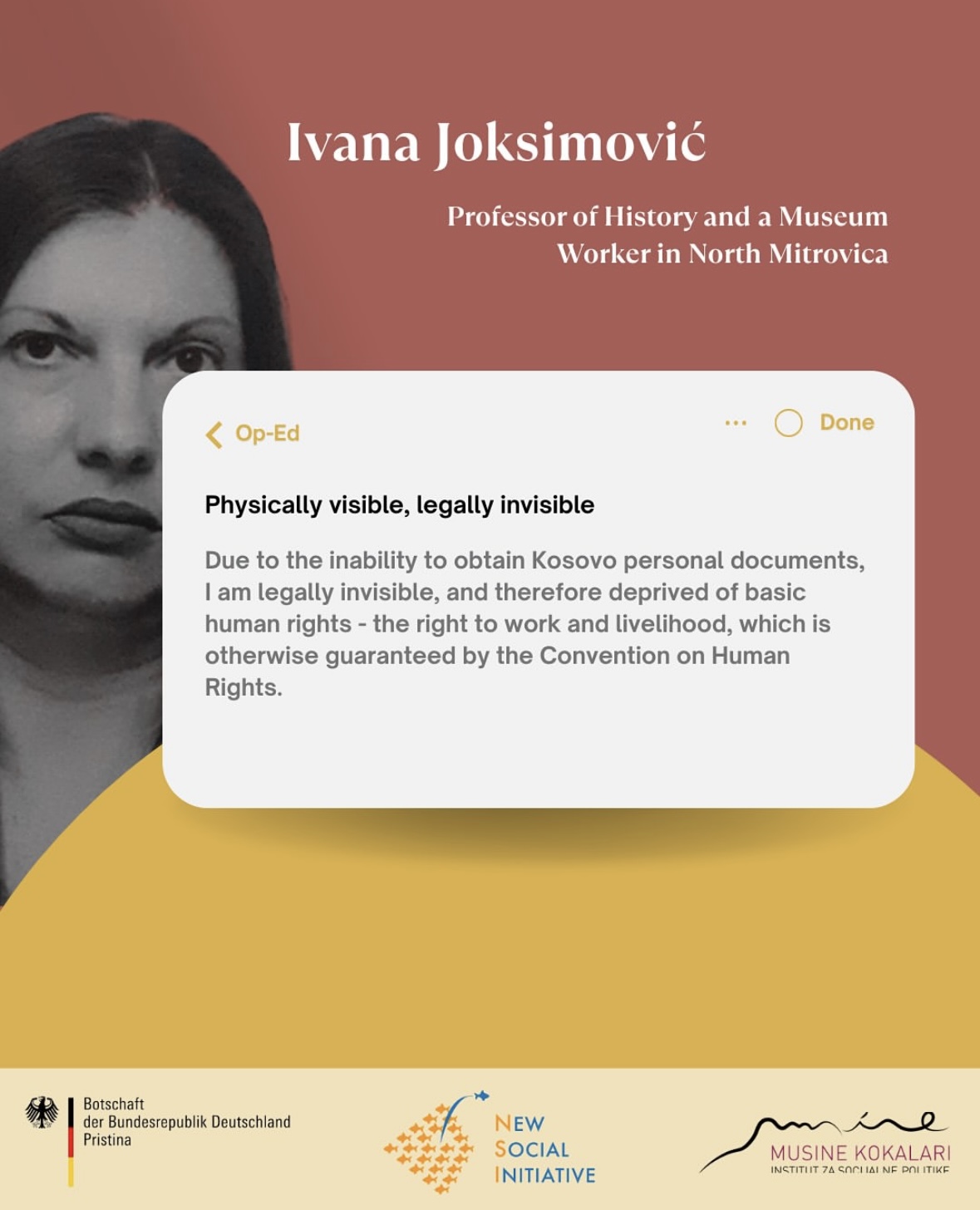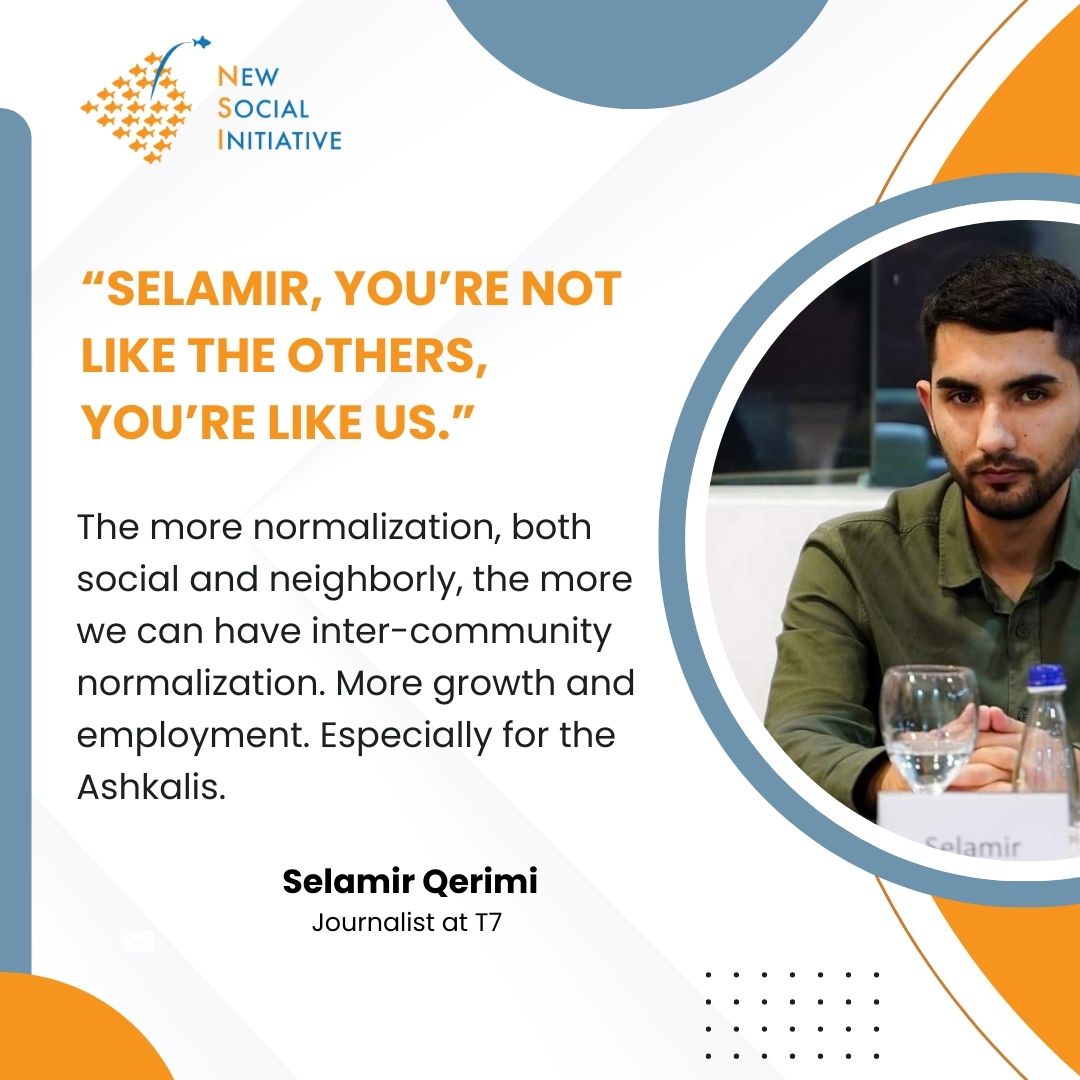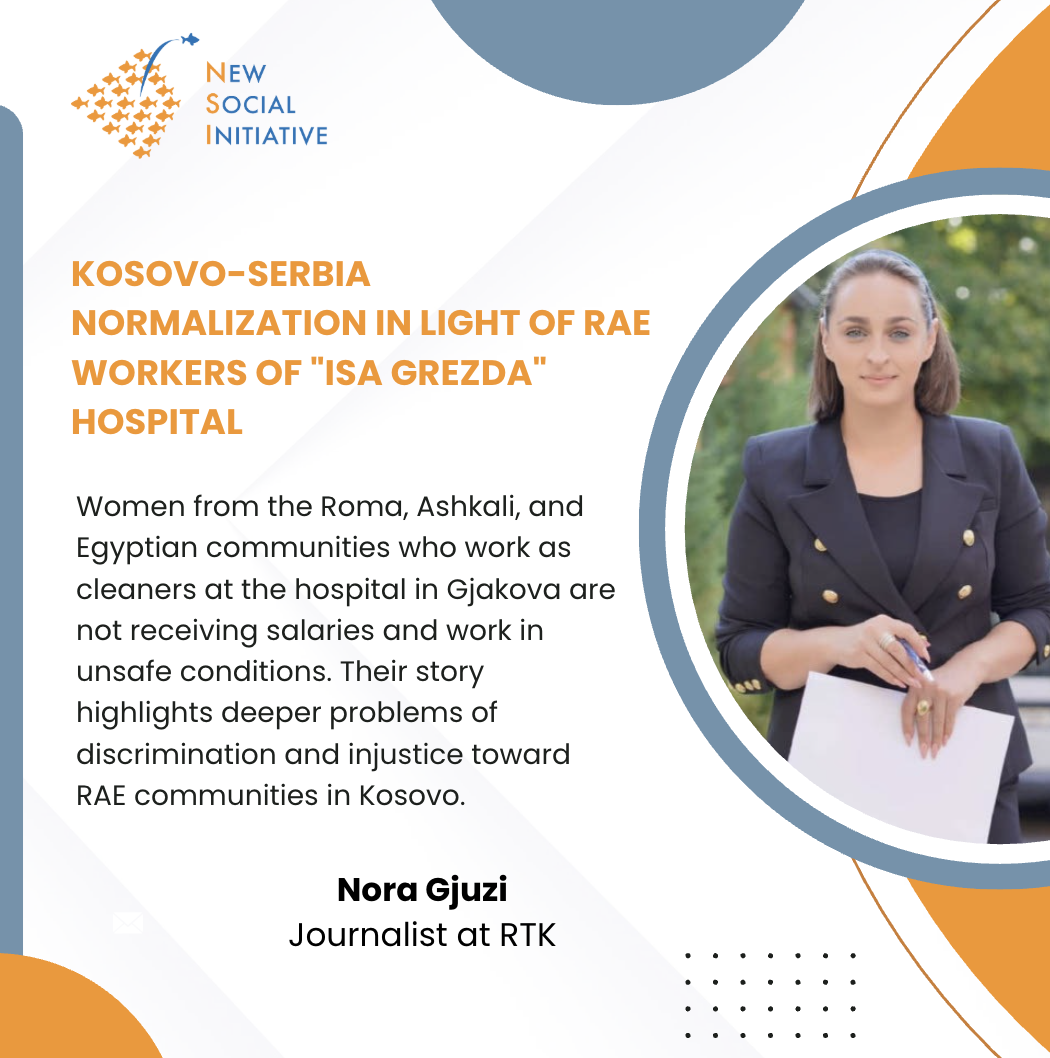Since October 7, and the first preliminary results, Albin Kurti, leader of Vetëvedonsje, and a candidate for the Prime Minister, enjoyed significant media attention, where he had a chance to discuss, among others, his perceptions of the Serb community in Kosovo. While some of his narratives may be regarded as populist, it is important not to disregard them at the get-go, especially knowing the extremes to which the party is known to go, when in need of driving the message home. Today, I hope, the message goes out to him.
“I have nothing against the Serbs, on the contrary I have many Serb friends in Kosovo.”
Dear Albin Kurti, you as a (future) Prime Minister is not to have anything against, or for someone, especially a group of people joint by their ethnicity; you are to serve them as you are to serve anyone. It is not about having Serb friends or not, as prime-ministry is not your festim to host friends, but the most important public role you have been entrusted with by the people living in Kosovo. However, talking about having Serb friends is a good buffer for shifting the conversation away from the nationalistic rhetoric of your party, and from all the challenges Serb community faces in Kosovo, onto you – such a big Man, that is even able to have Serb friends.
“The problem with the Srpska Lista is that they are Belgrade’s tool… and that is a huge problem.”
“We will first start the dialog bottom-up, with Serbs from Kosovo, and that dialog will be open, democratic and social about development, and not reconciliation. A Serb from Gračanica has not done anything to me or I to him or her (…)”
You often emphasis the connection between Srpska Lista and Belgrade and negate the same connection between the Serb community and Belgrade. As an informed politician, and a person “with many Serb friends”, I am sure you are aware that Serbs in Kosovo are employed in institutions run by Belgrade, they use services provided by those same institutions, they seek support from them, and they perceive them as the economic and social protector which enables the community to stay and live in Kosovo. Without these institutions many of the families would lose their only incomes, would not have a place to live in, would not a have whom to turn to for assistance and protection. They are in-and-out supported by that same Belgrade you try to negate and strip down to a simple political (ab)use; the Belgrade which takes care of them in a way yet to be seen from Pristina.
Yes, Srpska Lista holds close relations with Belgrade, as none of the Serb political parties have thus far; and while we can, and should, debate and criticize many things coming out of that relationship, one thing we cannot is the importance of the relationship itself. As Kosovo proclaimed independence from Serbia, there would naturally be many issues to discuss apart from the rights and the position of the Serb community in Kosovo. But this is exactly where the potential strength of the already undermined community lies – in Belgrade’s ability to use its leverage and the “many issues to discuss” to fight for the community. You, once again, as an informed politician, and a person “with many Serb friends” are aware of this, and you understand that if you are to establish dominance what is to be done next.
This is where your idea of the internal dialog comes into play – setting the Belgrade aside, and putting Serbs from Kosovo at the table; the Serbs who may not lack the will, but certainly do lack the power, to claim their rights and the equal position within the society. Putting Serbs at the table, while keeping them on the table, is nothing but a way of shifting the dialog from “what you require to be delivered” to “what I offer to be delivered”. It is a way of distancing the community from one of their main sources of strength – the Belgrade, which they need in the fight for their preservation. Because unfortunately, past years have taught us that the fight is beyond needed, as most of constitutionally guaranteed community rights lack enforcement, to say at least.[1]
“(…) if you ask Albanians, Serbs, Bosniaks, Turks, Roma, in Kosovo, what they need they tell you: justice and jobs.”
You go on and say that all people in Kosovo seek the same – justice and jobs, but how can they reach the same end goal, if their starting positions are miles away. Serb community do seek justice and jobs (remember – the ones mainly provided by Belgrade), but above that they seek safety and security – of their homes[2], of their religious sites[3], of themselves[4]. They have not done anything to you, as you say, but they are experiencing institutional and social repercussions for everything that has been done by all sides in the past years, thus disabling them to be on the market solely for the justice and jobs.
So, Dear Mr. Kurti, if you really seek to represent and stand in defense of all people living in Kosovo, you first task is to acknowledge the heterogeneity among ethnic groups, and ways of compensating for it; not for the sake of Belgrade or the internationals, but for the sake of Kosovo, its citizens, and everything you claim to represent.
[1] The lack of implementation and protection of fundamental rights especially in regards to communities in Kosovo was highlighted in Kosovo Progress report as well: “The legal framework broadly guarantees the protection of human and fundamental rights in line with European standards. However, the implementation of human rights legislation and strategies is often undermined by inadequate financial and other resources, particularly at local level, limited political prioritization and lack of coordination. The existing mechanisms for coordination and implementation of human rights are ineffective. The large dependence on foreign donors remains. More needs to be done to effectively guarantee the rights of persons belonging to minorities, including Roma and Ashkali and displaced persons (…)”. For more please see: European Commission, Kosovo 2019 Report, Brussels: 2019, Page 4, available at: https://ec.europa.eu/neighbourhood-enlargement/sites/near/files/20190529-kosovo-report.pdf
A direct example of lacking of implementation of the rule of law is language rights. According to Constitution, Article 5, The official languages in Kosovo are Albanian and Serbian, “However, the government faces serious problems in meeting these legal obligations due to inadequate budgeting capacities and staffing, leading to the lack of basic language standards of quality translation of official government documents, especially in Serbian. This situation leads to inequality among citizens, feeling of discrimination, non-acceptance of all communities and increases the feeling of isolation and lack of tolerance.” For more see: Office of the Language Commissioner, Annual Report 2018, Pristina: 2019, Page 10, available at: http://www.komisioneri-ks.org/repository/docs/English_Annual_Report_2018.pdf
[2] Example: https://kossev.info/zapaljena-povratnicka-kuca-u-klini/
[3] Example: https://kossev.info/eparchy-of-raska-prizren-concerned-over-announcement-of-construction-in-protected-religious-site/ and https://kossev.info/decision-on-the-confirmation-of-decani-monastery-s-ownership-of-24ha-not-implemented-3-years-after-it-was-reached/
[4] Example: https://kossev.info/incident-in-klina-municipality-a-local-serb-priest-intercepted-while-returning-with-family-from-the-service/










